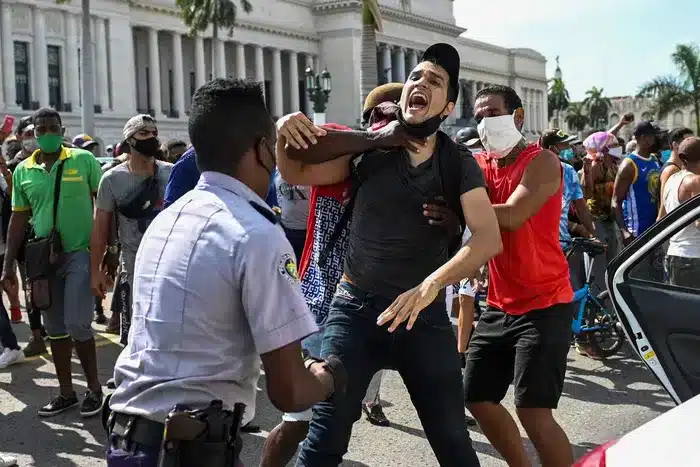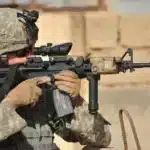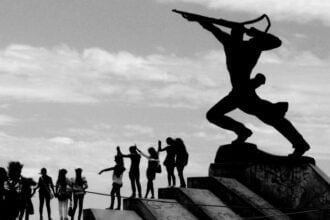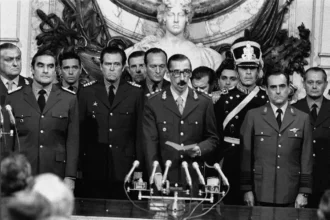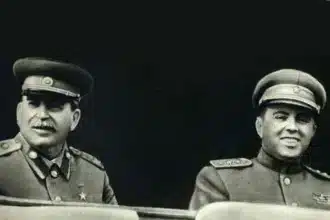The discussion surrounding Cuba in the UNHRC has intensified in recent international debates focused on human rights. The UNHRC, often regarded as a primary global advocate for rights, generates significant controversy when juxtaposed with Cuba’s membership. Such involvement not only prompts queries about Cuba’s own human rights history, but also raises concerns regarding the integrity and criteria of the Council.
Commitment to the promotion and protection of human rights remains at the heart of the UNHRC’s mission. Yet, the ongoing presence of Cuba in the UNHRC presents a challenging paradox. Some posit that this membership provides an avenue for dialogue and potential reform; others perceive it as an erosion of the Council’s foundational values.
Within the intricate realm of international relations, distinctions between political diplomacy and genuine human rights advocacy often blur. Cuba’s role in the UNHRC underscores this conundrum, urging a thorough reflection on the delicate equilibrium between diplomatic engagements and the unwavering commitment to human rights principles.
This article endeavors to navigate the complexities inherent to Cuba’s association with the UNHRC. Through an exploration of its historical ties to the international community, positions within the Council, and resultant criticisms, this analysis seeks to furnish a comprehensive understanding of the challenges and implications entailed by Cuba’s involvement in the UNHRC.
Historical Background
Cuba’s international trajectory since the 1959 revolution has been one of intriguing dichotomies. As the island nation grappled with its new socialist identity under the leadership of Fidel Castro, it adopted an assertive posture in the global arena, often challenging Western hegemonies and aligning itself with the Soviet bloc during the Cold War era. This alignment had far-reaching implications for its interactions with international bodies, especially those rooted in Western liberal values.
Cuba’s engagement with the United Nations (UN) over the decades has been emblematic of its broader foreign policy approach. While consistently advocating for the principles of sovereignty and non-intervention, Cuba has often found itself at odds with the UN’s human rights mechanisms. Its own internal human rights record, marked repressions and lack of political freedoms, has been a focal point of criticism.
The country’s history in the UNHRC and its predecessor, the Commission on Human Rights, offers insights into its evolving strategy. Cuba’s tenure in these bodies has been marked by efforts to shift the human rights discourse away from individual civil and political rights, emphasizing instead collective economic, social, and cultural rights. This perspective aligns more closely with Cuba’s socialist ideology and provides a counter-narrative to Western human rights paradigms.
However, the central point of contention remains: How has a nation, often under the scanner for its human rights record, managed not just to be a part of but also play a significant role in shaping the discourse within the UN’s primary human rights institution? The answer lies in a combination of adept diplomacy, strategic alliances, and the changing dynamics of global politics.
Understanding Cuba’s historical engagement with the UN and, specifically, its involvement in the UNHRC, is crucial to contextualizing the debates and criticisms that surround its current position within the Council.
Cuba’s Stance in Supporting Controversial Governments
The issue of Cuba in the UNHRC is not solely about its own human rights record but extends to its international alignments and support for other nations facing human rights scrutiny. Cuba’s voting patterns and stances in the Council offer a lens into its broader geopolitical affiliations.
One of the most debated aspects of Cuba in the UNHRC has been its consistent backing of governments under criticism for alleged human rights abuses. Venezuela serves as a poignant example. Despite overwhelming reports of rights violations in Venezuela, Cuba in the UNHRC has consistently voted against resolutions that condemn the Maduro regime or call for independent investigations.
Similarly, in the case of Syria, where the Assad regime has been accused of numerous atrocities during the ongoing civil war, Cuba’s position in the UNHRC has been to oppose interventions or condemnations. This stance aligns with Cuba’s historical support for non-intervention and its strategic geopolitical interests.
A closer look at Cuba in the UNHRC reveals a pattern of supporting states with which it shares ideological or strategic ties, often at the expense of what many argue should be impartial human rights considerations. This strategy is not exclusive to Cuba but is particularly pronounced given its own contentious rights record.
Furthermore, the role of Cuba in the UNHRC has implications for the credibility of the Council. When a member state, already under scrutiny for its domestic rights situation, openly supports other controversial regimes, it raises questions about the UNHRC’s ability to function as a neutral and effective advocate for global human rights.
The continued involvement of Cuba in the UNHRC and its voting patterns therein serve as a reminder of the complex interplay between politics and principles in the realm of international human rights advocacy.
Critical Arguments on Cuba’s Pertinence in the Council
The ongoing participation of Cuba in the UNHRC raises several critical questions about the very ethos of the Council. Given the UNHRC’s mandate to promote and protect human rights worldwide, the inclusion of countries with questionable rights records, like Cuba, has sparked debates about the body’s credibility and efficacy.
Firstly, the presence of Cuba in the UNHRC underscores a seeming disconnect between the Council’s foundational values and the political actions and affiliations of some of its members. The Council’s primary mission is endangered when its members are perceived as not adhering to the universal principles it upholds. Cuba, with its record of supporting controversial governments, adds fuel to this critique.
Comparing Cuba in the UNHRC to other member countries further complicates the discourse. While no nation is without flaws, the consistent support Cuba offers to authoritarian regimes puts it in stark contrast with members that aim to maintain a balanced approach to human rights issues.
Furthermore, the efficacy of the Council is potentially compromised with Cuba in the UNHRC. Given the global expectation of the Council to act as a neutral arbiter in rights-related matters, the overtly political stances of some members can deter it from its primary goals. The challenge lies in discerning genuine advocacy for human rights from geopolitical maneuvering.
The critical reflection on Cuba in the UNHRC is not merely an indictment of Cuba but a call for introspection within the UN system. It poses pressing questions about the criteria for membership, the balance between diplomatic considerations and human rights advocacy, and the real-world impact of the Council’s resolutions.
The debate around Cuba in the UNHRC serves as a microcosm of larger issues plaguing international human rights mechanisms, necessitating a deeper exploration into the efficacy and purpose of such bodies in the current geopolitical climate.
The Shadow of Political Prisoners
A closer look at the political prisoner situation in Cuba paints a troubling picture. Recent data indicates that there are 1062 political prisoners in Cuba. Alarmingly, 21 new political prisoners were registered in just September of 2023. These figures become even more disconcerting when considering the plight of women and minors detained for political reasons. At least 117 women, including two transgender individuals, are currently incarcerated on political and conscience grounds. Furthermore, 34 minors, consisting of 30 boys and 4 girls, are either serving sentences or undergoing penal processing for political reasons.
These minors are often housed in facilities that, while purportedly for juveniles, function as full-fledged penitentiaries. The grounds for detaining these individuals rest on ambiguous and broad charges from the Cuban Penal Code. These charges are leveraged to penalize the exercise of fundamental rights such as freedom of conscience, thought, expression, and association.
Given these facts, serious questions arise about the alignment of Cuba’s UNHRC membership with the council’s principles and objectives.
Cuba in the UNHRC: Conclusions and Recommendations
Cuba’s presence in the UNHRC is emblematic of broader concerns, prompting reflection on the very fabric of the Council’s composition and functioning. To truly honor its mandate, the UNHRC must strive for a membership that reflects a genuine commitment to human rights, ensuring that nations with significant human rights concerns, like Cuba, are under continuous scrutiny.
A clearer lens on the voting patterns within the UNHRC is essential. By making the decision-making processes more transparent, the global community can better hold member states accountable for their positions. Such transparency might have prevented some of the more controversial stances taken by Cuba in the UNHRC.
Furthermore, it’s imperative to recognize the vital role of civil society in this discourse. By amplifying the voices of NGOs and human rights organizations, the UNHRC can ensure a more balanced representation of human rights issues, potentially counteracting the influence of politically motivated decisions such as those observed with Cuba in the UNHRC.
Regularly reviewing the human rights records of member states is another crucial step, as is fostering constructive diplomatic dialogues. These conversations can bridge understanding and potentially usher in meaningful changes in human rights practices.
In wrapping up, the contention around Cuba in the UNHRC isn’t just about Cuba. It’s a call to action, urging the UNHRC and the international community at large to introspect, reform, and renew their commitment to the sacrosanct principles of human rights.


